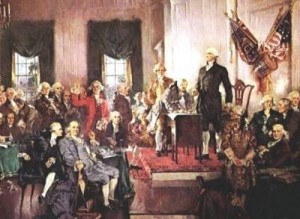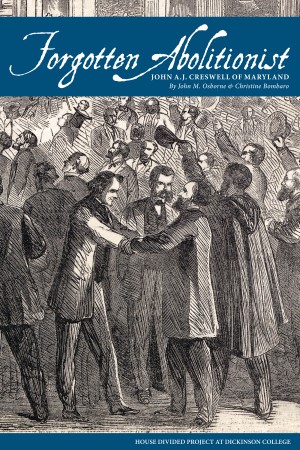 Slavery made a significant impact at the 1787 Constitution Convention. Most of the Framers believed that they had other more pressing worries than the fate of that increasingly sectional institution, but they knew full well that a national debate over the future of slavery was divisive and potentially catastrophic for the new union.
Slavery made a significant impact at the 1787 Constitution Convention. Most of the Framers believed that they had other more pressing worries than the fate of that increasingly sectional institution, but they knew full well that a national debate over the future of slavery was divisive and potentially catastrophic for the new union.
Here are the three most critical references to slavery that appeared within the US Constitution that they adopted:
Article 1, Section 2
Representatives and direct taxes shall be apportioned among several States which may be included within this Union, according to their respective numbers, which shall be determined by adding to the whole number of free persons, including those bound to service for a term of years, and excluding Indians not taxed, three-fifths of all other persons.
Article 1, Section 9
The Migration or Importation of such Persons as any of the States now existing shall think proper to admit, shall not be prohibited by the Congress prior to the Year one thousand eight hundred and eight, but a Tax or duty may be imposed on such importation, not exceeding ten dollars for each Person.
Article 4, Section 2
No Person held to Service or Labour in one State, under the Laws thereof, escaping into another, shall, in Consequence of any Law or Regulation therein, be discharged from such Service or Labour, but shall be delivered up on Claim of the Party to whom such Service or Labour may be due.
Study Question
What word is missing and why did many anti-slavery politicians such as Abraham Lincoln later argue that this omission was significant?
The Debates
And here is a revealing quotation from Virginia delegate George Mason during the 1787 debates over slavery that occurred in Philadelphia. At the time, Mason was one of Virginia’s largest slaveholders.
“Every master of slaves is born a petty tyrant. They bring the judgment of heaven upon a Country. As nations can not be rewarded or punished in the next world they must be in this. By an inevitable chain of causes & effects providence punishes national sins, by national calamities.”
–George Mason, August 22, 1787
Jeff Kash, a teacher from Madison Middle School in North Hollywood, California, has posted online a thoughtful lesson plan that he has created from the excerpts from the debates that occurred on August 21, 1787, the day before Mason unleashed his dire prediction.

